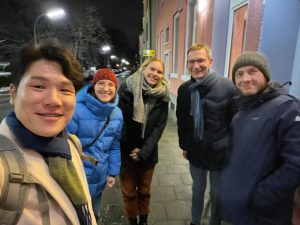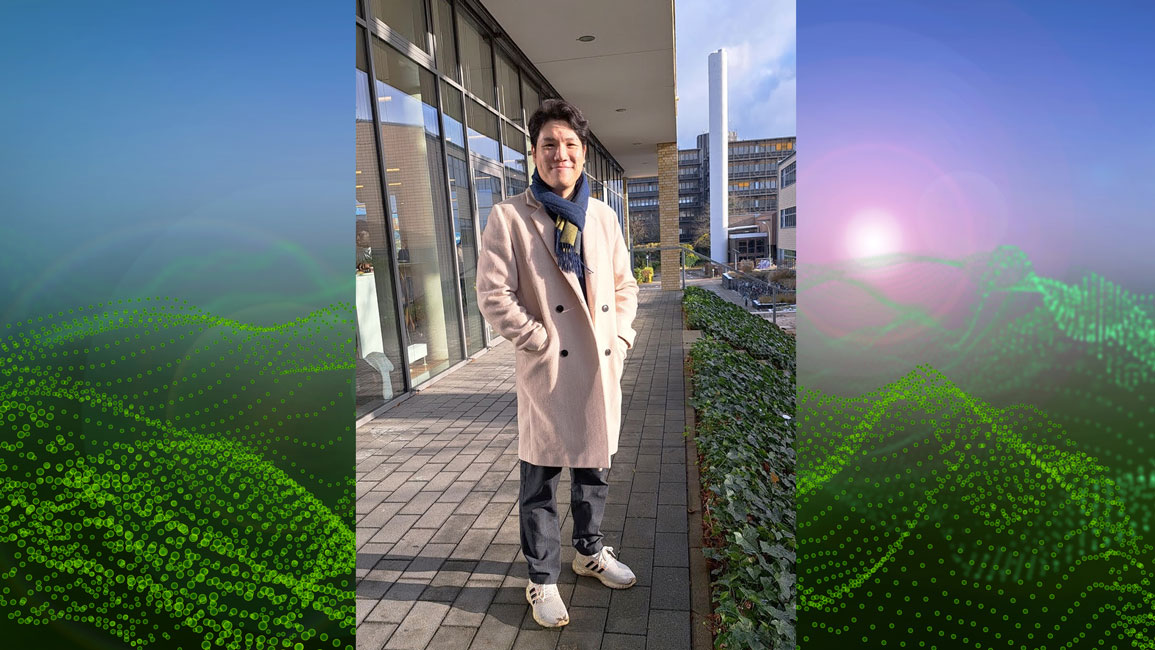Information of the Applicant from Kyoto University:
- Atsushi YAMAUCHI, Professor, The Center for Ecological Research
Duration of Stay:
- October 16 to November 30, 2023
Aims:
- Building a new research network in German
- Discussion to improve the quality of research
Visited Researchers and Institutions in Germany:
- Prof. Dr. Frank Hilker, Systems Science, Institute of Mathematics, Osnabrück University
Participated events; conferences, seminars, etc. in Germany:
- Prof. Dr. Frank Hilker’s lab meeting (Osnabrück University)
- Colloquium in the department of Systems Science (Osnabrück University)
Motivation for Kyoto-DAAD Programme
Networking of young researchers in mathematica ecology and expectations for international collaborative research seeds
I study Mathematica Ecology, which theoretically investigates the ecological aspects of organisms. Prof. Frank Hilker, Osnabrück University, is one of the active researchers in the research area. We considered a mutual exchange of students of both laboratories, for which we applied to AI DA. In the program, we aim to provide opportunities to learn novel research approaches and to rear international views toward students of both Japanese and German universities. We also expect students to expand their research networks and produce seeds of new research through the exchange program.
Achievements and Outcomes of ECRs’ Stay
Interaction and exchange of ideas with German researchers at Osnabrück University
During one and a half months of my stay at Osnabrück University, I had two research presentations in the Department of System Science. I discussed actively with the researchers about my current research, which contributed to improving the quality of my research. Additionally, I participated in four colloquiums held within the department, learned about environmental assessment models from German researchers, and discussed the results. In person, I spent time with graduate students introducing each other’s research and results directly.
Outlook for the Project
The students joining this exchange program are preparing their PhD dissertation. In the program, they had opportunities to discuss and interact internationally with various researchers, which can contribute to improving the quality of their studies and theses. The students have kept in touch until now, which could result in collaborative studies between them. To realize such collaborations, the two relevant laboratories should maintain tight communication through various opportunities. The AI DA project can be a critical starting point for the long-term interrelationship between the laboratories.



![[間:AI DA]: supporting international carrier development of early career researchers (ECRs)](/exchange/aida/wp-content/themes/kyoto-u-daad/img/logo-aida.png)



